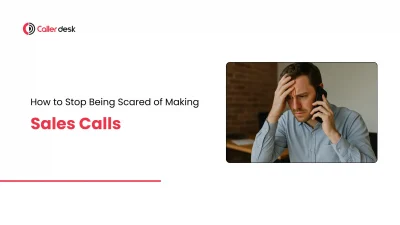You call someone.
You send them a message.
But they don’t reply.
At first, they were talking to you. Maybe they asked questions or said they were interested. But now, they have stopped answering. It feels like they just disappeared.
This can make you feel confused or even upset. You spent your time and tried your best — but now there’s no reply.
This happens to many people who try to sell something or grow their business. And most of the time, it’s not your fault.
The customer might be busy, not ready to decide, or may have forgotten to reply.
But if many people stop replying, it can cause problems. You might lose good leads or waste your time.
The good news is — you can fix this. There are simple things you can do to make sure more people reply and stay in touch.
Why Do People Stop Replying After Showing Interest?
1. They Are Still Thinking
The person might like your offer, but they’re not 100% sure. Maybe they need more time to decide. Instead of saying “not now,” they just say nothing at all.
They’re not ignoring you. They’re just unsure.
2. They Got Busy
Sometimes people stop replying because they got busy with work, family, or other things. It’s not that they don’t care. They just forgot or couldn’t respond in time.
It happens to all of us, right?
3. They Didn’t Understand the Benefits
If people don’t know how your product or service will help them, they may not see a reason to reply.
Maybe your offer was useful — but they didn’t understand that. So they lost interest quietly.
Next time, make sure to explain in a simple way how your product makes their life easier.
4. They Don’t Have the Money
Money can be a big reason. A person may like your product but can’t afford it right now. They may feel shy or awkward to say “it’s too expensive.”
So, instead of replying, they just stay quiet.
That’s okay. You can always check in later or offer a better plan when they’re ready.
5. They Need Someone Else to Decide
Sometimes, the person you’re talking to is not the one who makes the final decision. They may have to talk to their boss or team before saying yes.
If that takes time, you might not hear from them for a while.
That’s why it’s a good idea to ask early: “Is someone else also helping make the decision?”
How to Stop Customers from Going Silent (3 Easy Tips)
If a customer stops replying after showing interest, it can be frustrating. But in many cases, you can prevent it by making a few small changes to how you handle your conversations.
Here are three simple tips to reduce the chances of a customer going silent:
1. Use the Contact Method They Prefer
Not everyone likes to talk in the same way. Some people prefer phone calls. Others are more comfortable with text messages, email, or WhatsApp.
If you keep using a method they don’t like, they may ignore your messages even if they are interested.
To fix this, just ask them:
“What’s the best way for us to stay in touch?”
Once you know their preferred method, use it every time. This makes it easier for them to respond and keeps the conversation going.
2. Make Sure They’re Really Interested
Before you spend time on calls or meetings, it’s important to check if the person is actually serious about what you’re offering.
You can ask questions like:
- “Is this something you’re planning to buy soon?”
- “Will someone else need to approve this?”
- “What problem are you trying to solve?”
If their answers are clear and confident, that means they are likely serious. If they seem unsure or avoid the questions, they may not be ready—so you can decide whether to follow up later or move on.
3. Always End with a Clear Next Step
When a call or meeting ends without a plan, the customer may forget or lose interest. That’s why it’s important to always agree on what happens next.
Instead of saying “I’ll follow up later,” try saying something like:
“Would it be okay if we have a quick follow-up call next Tuesday?”
Then pick a specific date and time. This helps the customer remember, and they’re more likely to stay involved.
What to Do When a Customer Stops Replying
You did everything right—you called, followed up, maybe even sent a message or two.
But they still haven’t replied.
Don’t panic. It doesn’t always mean “no.” Sometimes, people just get busy or forget. Here are four simple ways to try and bring the conversation back:
1. Send a Friendly Reminder
Instead of sounding upset or pushy, keep it light and respectful.
You could say:
“Hey, just checking in. I know things can get busy. Is now still a good time to talk?”
This lets them know you understand and are still interested in helping.
2. Share Something Helpful
People like helpful things, not just sales messages. If you’ve found a useful blog post, guide, or quick tip related to their problem—send it over.
Try saying:
“I thought this might help with what we talked about earlier. Let me know if you find it useful!”
It’s a soft way to remind them of your value without asking for anything.
3. Mention a Gentle Deadline
If your offer or price is only valid for a short time, a polite reminder can bring them back.
For example:
“Just a quick heads-up—this offer is available until Friday. Let me know if you’d like to go ahead.”
This adds a bit of urgency without sounding forceful.
4. Space Out Your Follow-Ups
If someone doesn’t reply, it doesn’t always mean they’re not interested.
They might be busy or just forgot. Stay patient, be polite, and try again after some time. A friendly message can help restart the conversation.
Conclusion
When someone stops replying, it can feel frustrating—especially when you’ve worked hard to help them.
But remember: most of the time, it’s not because they’re ignoring you on purpose. They may be busy, unsure, or just waiting for the right time.
The good news is, you can handle this smartly.
Use the contact method they like. Ask the right questions to see if they’re truly interested. And always end every call or chat with a clear next step.
And if someone still goes silent, don’t give up right away. A kind reminder, a helpful message, or a little patience can bring the conversation back.
Stay polite. Stay professional. And keep things simple.
That’s how you turn silence into replies—and replies into results.
Also read this- How to Stop Being Scared of Making Sales Calls





